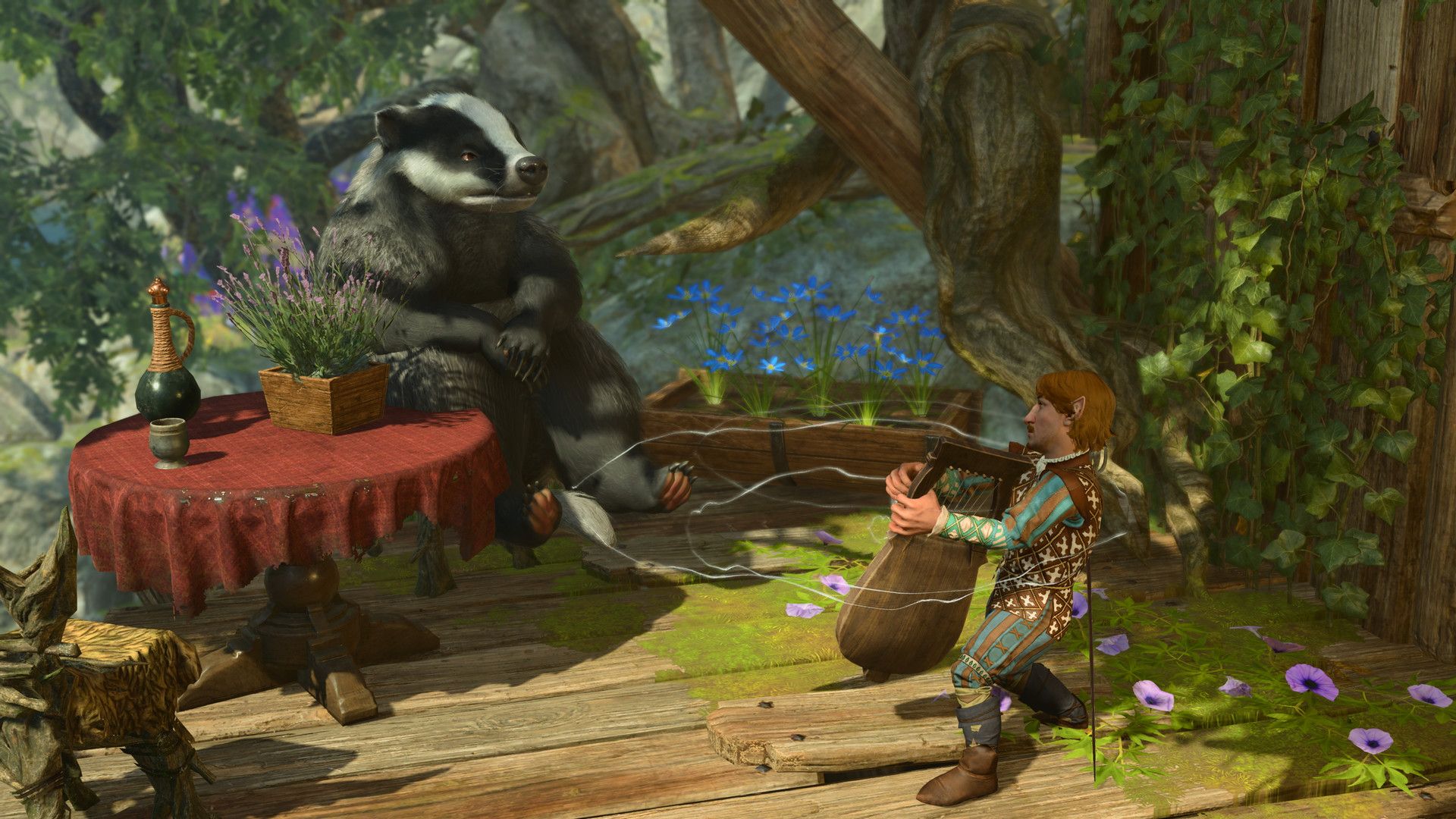
Baldur's Gate 3 is now just days away, but if you're new to the world of D&D there might be a few unexpected obstacles to overcome. Thankfully, kindhearted fans of the digital and tabletop versions of Dungeons & Dragons are stepping up to help out.
Streamer DansGaming is leading the charge with a thread all about the ways in which Baldur's Gate 3's D&D-shaped combat might differ from what you'd traditionally expect. For instance, he begins with the fact that D&D features no true tanking mechanic - while you might have a few beefier party members, there's nothing to stop enemies from running past them and diving straight onto your weaker wizards and rangers.
1/ There is no true “tank” role or “tanking”. Fighters, Barbarians, Paladins, can be in melee combat since will have higher armor class and hit points but there are very few mechanics to prevent monsters from running away from them and attacking your squishy mage.July 26, 2023
He also points out that death is not the end, thanks to D&D's Death Rolls mechanic - a fallen party member will automatically roll a dice on their turn in the initiative order. If they 'save' three times they'll stabilise, but if they fail they'll be dead for good (or at least until you can find out how to revive dead characters in Baldur's Gate 3). While that's happening, however, you can heal them to get them back in the fight earlier - for what it's worth, our expert suggests using Healing Word to get that done.
While previous versions of D&D have made spellcasters seriously strong, the current edition (5e) makes them a bit more balanced, and DansGaming points out that you'll want to pay attention to things like Concentration - which disrupt your current spell if it's broken - and Spell Slots during fights. You can't just fire out your most powerful spells over and over again, and you'll need to recharge once you run out of slots. Mages are also very adept at controlling the battlefield - while Fireball might be a lot of fun, it might be more useful to limit the impact of your enemies with cleverly-applied buffs and nerfs instead.
For martial classes, you'll need to pay attention to how far away you are from your foes. Attacks of Opportunity apply if you try and move past an enemy that's in melee range, as they swipe at you while your back is turned. And if you're using a ranged attack, you'll want to make sure you're actually at range - a bow is far less effective if you're right up to close to the goblin you want to hit with it.
Even if you're a D&D genius, there's something to learn from the thread, as the top comment beneath it points to a page on the Baldur's Gate 3 wiki that explains all of the differences between the tabletop game and Larian's interpretation of it. Those include an incentive to eat everything in sight, dice that buff enemy damage by 400%, and the benefits of getting the high ground.
Further afield, the wider Baldur's Gate 3 community is trying to help out too. Some players are sharing the game's best-hidden secrets, while others are collating tips for those not as familiar with either the D&D format or Larian's previous games. The bad news is even with all of those tips, you're still unlikely to see everything on your first Baldur's Gate 3 playthrough. The good news, however, is that with 17,000 endings to explore, there's plenty of reason to boot up multiple new playthroughs in future.
There's still time to check out our Baldur's Gate 3 preview ahead of launch.







